Cuban Five 17
Cuba mourns the death Alicia Jrapko

Cuba mourns the death of prominent solidarity activist Alicia Jrapko (+ Video)
Her fundamental work was the struggle for the release of the Five Cuban patriots, unjustly imprisoned for monitoring terrorist activity in the United States against Cuba.
By Nuria Barbosa León
January 12. 2022
Translated and edited by Walter Lippmann for CubaNews.
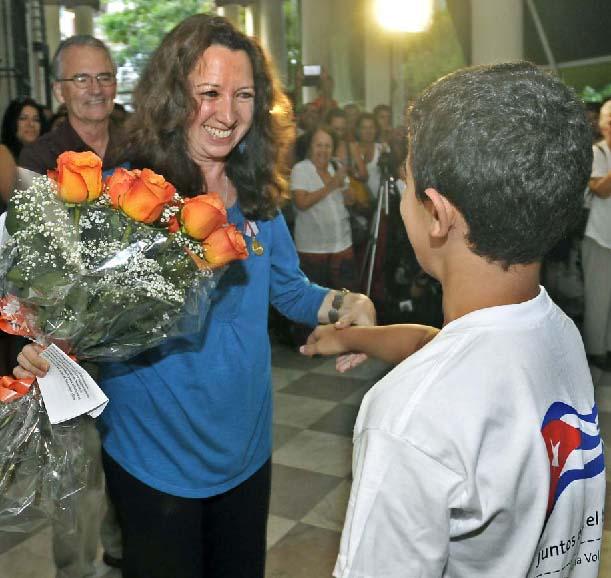
Upon receiving the Friendship Medal, she reaffirmed her commitment to defend the Cuban Revolution until her last days. Photo: José Manuel Correa
The First Secretary of the Central Committee of the Communist Party of Cuba and President of the Republic, Miguel Díaz-Canel Bermúdez, lamented the death of the tireless Argentine fighter Alicia Jrapko, who devoted her life to fight for justice on behalf of her disappeared comrades. She fought with determination for the return of Elián González, the freedom of the Five and against the blockade.
“Farewell sister,” Diaz-Canel wrote on Twitter. Also, Foreign Minister Bruno Rodríguez Parrilla expressed his heartfelt condolences for the death of the solidarity activist of Argentine origin and resident of Oakland, California, who had to fight against a malignant tumor for more than two years.
#Cuba mourns the death of the tireless Argentine fighter Alicia Jrapko, who devoted her life to fight for justice on behalf of her disappeared comrades. For the return of Elián, the freedom of the Five and against the #Blockade she fought to the end. Farewell sister. pic.twitter.com/yqeJKDFxux
– Miguel Díaz-Canel Bermúdez (@DiazCanelB) January 12, 2022
Granma spoke with her during the solidarity event held in Havana from November 1-3, 2019, where she expressed her faithful activism as coordinator of the International Committee for Peace, Justice and Dignity of the Peoples in the US.
She urged us to “reflect on the fact that today the U.S. is a convulsed society with a decaying system. The government chooses which countries to attack and which to support, depending on their behavior in the face of imperial laws. Today the enemy for them is Venezuela, Cuba, Bolivia, Syria and other nations that have chosen to protect their sovereignty without bowing to imperialist interests.
It was with deep sorrow that we learned of the passing of Alicia Jrapko, a close friend of #Cuba and a devoted defender of just causes. Her support to the struggle for the return of the Five and for the end of the blockade was extraordinary.
Heartfelt condolences to her family and friends. pic.twitter.com/P3xAMZUHvo
– Bruno Rodríguez P (@BrunoRguezP) January 12, 2022
“Cuba has done nothing to the U.S., it has never attacked it, but that government must justify its actions to divert attention so that people cannot reflect on the chaos inside the country. There are many internal problems in terms of unemployment, racism, drugs, murders and other evils. It is a society that shows a face of hatred, xenophobia, instead of messages of love and peace,” argued the woman who headed the International Committee for the Freedom of the Five in the United States.
“I have hope, because in the United States we unite and fight to conquer our rights. Every day we fight and somewhere that society is going to explode,” said Alicia Jrapko, winner of several distinctions, among them the Felix Elmuza Medal awarded by the Union of Journalists of Cuba, the Shield of the city of Holguin and the Friendship Medal granted by the Council of State of the Republic of Cuba, at the proposal of the Cuban Institute of Friendship with the Peoples.
———————————————————————————————————–
Video: Cuban TV prime-time news report on Alicia Jrapko’s passing. No subtitles.
Making even the impossible possible

Gema, the most beautiful proof that Cuba can make even the impossible possible
Neither the bars nor the miles of distance prevented the emergence seven years ago of fruit of resistance and loyalty: Gema.
Translated and edited by Walter Lippmann for CubaNews.

She was born “by remote control” says Gerardo Hernandez Nordelo, whom we all know as one, among five, of the Cuban Heroes condemned to the most unjust confinement in the US.
However, neither the bars nor the miles of distance prevented the emergence seven years ago of a fruit of the resistance and loyalty of man: Gema was and is the most beautiful proof of the lineage of the Cuban, the one who can make even the impossible possible.
#GemaDeCuba , the firstborn of Adriana and @GHNordelo5 is indeed the most beautiful proof that even the impossible can be made possible. #CubaViveYCelebra, posted the First Secretary of the Communist Party of Cuba and President of the Republic, Miguel Díaz-Canel Bermúdez, on his Twitter account on the girl’s birthday.
This January 6, the eldest daughter of Gerardo and his wife Adriana Pérez O Connor, turns one year older, and with it come back to memory the past memories: the two life sentences and fifteen years in prison, the hard separation of the couple, and the worst, the absence of children, without the slightest possibility of physical contact to conceive them.
But the strength of faith and hope was greater than the enemies’ determination to punish the Cuban Revolution. During 2013 and 2014 Washington and Havana conducted negotiations that included the possibility of assisted reproduction treatment for Adriana Perez. She had requested it and after several denials, U.S. Senator Patrick Leahy, passing through our land, finally served as mediator and guarantor of the process.
Leahy had visited the island on multiple occasions since the 1990s and is opposed to the U.S. blockade against the island. In 2013 he came with his wife, Marcelle Pomerleau, a nurse by profession. They met with Adriana, who confessed her fear of losing the opportunity to have a baby with her husband.
The response to such a demand was almost immediate, circumventing the laws of the federal prison system that does not allow conjugal visits.
In early 2014, the first insemination attempt was made, but failed. But the second, a couple of months later, was successful. Panama welcomed the initiative and the Cuban government paid for everything.
Thus, the news of Adriana’s pregnancy would bring joy not only to the Cuban family, but also to allies from other parts of the world, who were watching every detail of the pregnancy, until that historic January 6, 2015, when at 8:30 in the morning of the 57th Year of the Revolution, Gema was born in Havana.
A few months earlier, on December 17, 2014, Cuba had jubilantly celebrated the complete return of its five children. With January came one more, weighing only 7.7 lbs, according to science, but in reality, she weighed more, because she carried within her the dream, the sleeplessness, the longing and the resistance of an entire people.
#GemaDeCuba , the firstborn of Adriana and @GHNordelo5 is, indeed, the most beautiful proof that even the impossible can be made possible. #CubaViveYCelebra https://t.co/r8Sxic3TgZ
– Miguel Díaz-Canel Bermúdez (@DiazCanelB) January 7, 2022
Magali Llort Ruiz has passed away

Magali Llort Ruiz passed away(+Video)
Magali Llort distinguished herself for her firmness in defense of the principles of the Revolution.
Translated and edited by Walter Lippmann for CubaNews.
September 23, 2021 16:09:42 PM
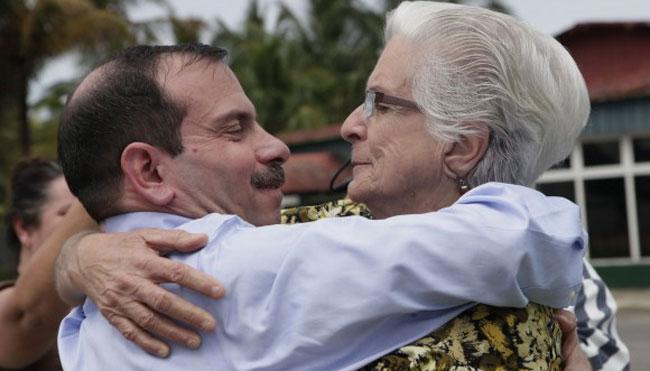
Magali Llort. Photo: Taken from the Internet
n the morning hours of September 23rd, Magali Llort Ruiz, mother of the Hero of the Republic of Cuba Fernando Gonzalez Llort, passed away.
Magali began her working life at the National Bank, where she started as a secretary. She was a union leader and reached management positions in the bank. In 1994 she retired and began working at the Union of Construction Companies of the Caribbean (Uneca) until 2000, when she actively joined the mothers and wives of the Five Heroes in the campaign for the release of the anti-terrorist fighters.
She was elected deputy in the VII Legislature of the National Assembly of People’s Power. The Commander in Chief, in a solemn act in the Karl Marx Theater on March 8, 2002, awarded her the Mariana Grajales Order, by agreement of the Council of State. She was also awarded the August 23rd Medal, an honorary distinction of the Federation of Cuban Women. Magali Llort distinguished herself for her firmness in defense of the principles of the Revolution. At the time of her death, she was a member of the Cuban Communist Party. At the request of her family, her body will be cremated.
Magali Llort has passed away

Magali Llort, a reference in the struggle for the liberation of the Five Heroes, has passed away
The Cuban Institute of Friendship with the Peoples paid tribute to the mother of one of these young Cubans, who spent more than 15 years in prison for alerting her country about Washington’s violent plans.
Published: Friday 24 September 2021 | 12:31:59 am.
Author:
Translated and edited by Walter Lippmann for CubaNews.
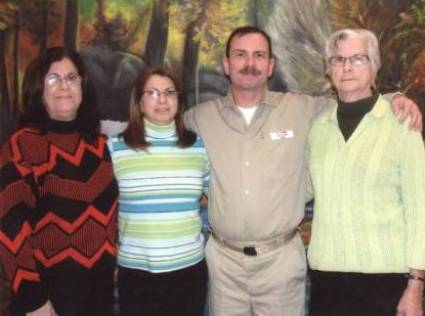 Cuban activist Magali Llort, a reference in the struggle on the island for the return of the five heroes who were imprisoned in the United States due to their anti-terrorist activities, died Thursday, reports Prensa Latina.
Cuban activist Magali Llort, a reference in the struggle on the island for the return of the five heroes who were imprisoned in the United States due to their anti-terrorist activities, died Thursday, reports Prensa Latina.
The Cuban Institute of Friendship with the Peoples (ICAP) paid tribute to the mother of one of these young Cubans, who spent more than 15 years in prison for alerting her country about Washington’s violent plans.
Through its website Siempre con Cuba (Always with Cuba), the institution also recalled Llort’s trajectory as a revolutionary and congresswoman who deserved different recognitions.
“Magali, a loving mother, did not like the media to talk about her, preferring instead to denounce the injustice committed against the Five, of whom she said that they were all her children,” the website says.
Recently, the president of Cuba, Miguel Díaz-Canel, recalled the 23rd anniversary of the imprisonment of the five anti-terrorists in the United States and pointed out that the struggle for their liberation revealed to the world the aggressions against the Antillean country.
Interview with Adriana Pérez

Interview with Adriana Pérez
I live proud of being a woman and Cuban
By Magaly Cabrales – Cuba | lajiribilla@cubarte.cult.cu
Translated and edited by Walter Lippmann for CubaNews.

“As time goes by, you gather strength, willpower, resources and energy to face the new challenges that life imposes on you”. Photos: Courtesy of the interviewee. Taken from the family album
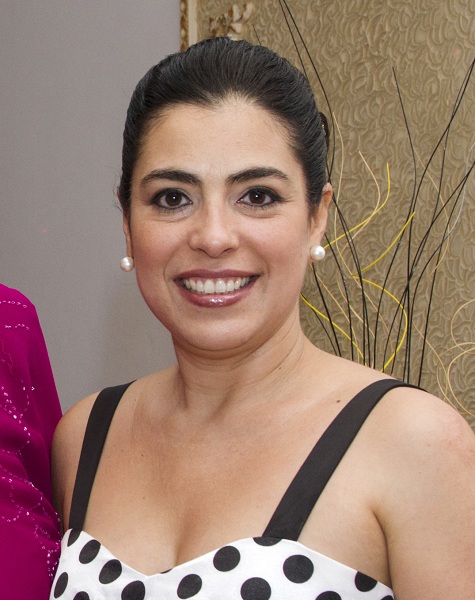
“Gerardo always taught me that: live each day as if it were your last. And that’s what I did.”
During the relentless struggle for the Five’s release, did you ever feel alone?
My life strategy was to prepare for the future day by day, even though I had no idea when it was going to come. But I still did what I could every day. Gerardo always taught me that: live each day as if it were your last. And that’s what I did, even though I felt that all the sentimental burden I was carrying was hardening me. I got so hard that I reached the last stage of the campaign terribly exhausted from a sentimental point of view. Despite that exhaustion, I found the strength to welcome Gerardo, Ramon and Tony when they finally arrived in their homeland on December 17, 2014.
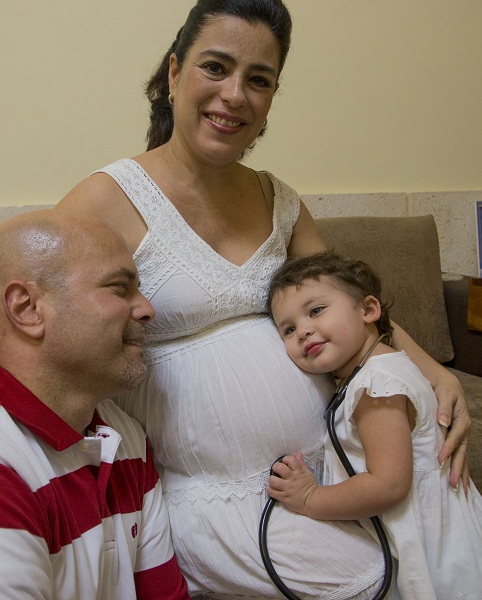
“Just because of the perseverance (…) that characterizes Cuban women, I managed to get here with all my dreams turned into a beautiful reality”.
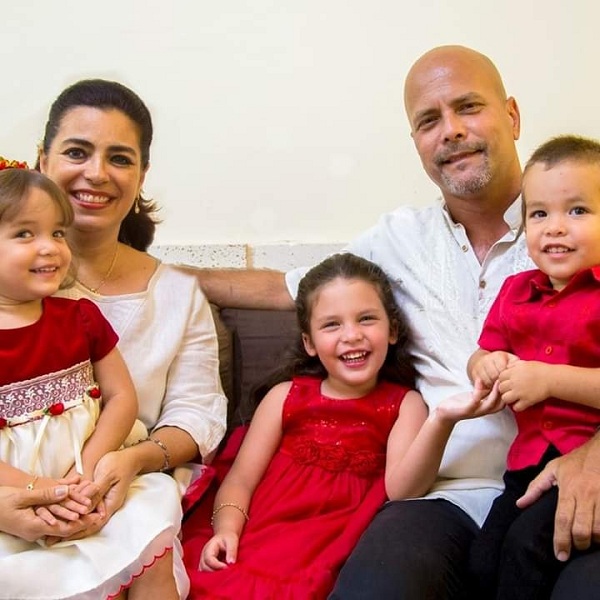
“Today, she says excitedly, she is immensely happy because ‘I have Gerardo and my children by my side'”. Photo: Taken from the Facebook profile GEMA – from Cuba.
The Wasp Network Stings in Miami

The Wasp Network Stings in Miami
 By Rosa Miriam Elizalde
By Rosa Miriam Elizalde
Cuban journalist. First Vice President of UPEC and Vice President of FELAP. She has a PhD in Communication Sciences and is the author or co-author of the books “Antes de que se me Olvidar”, “Jineteros en La Habana”, “Clic Internet” and “Chávez Nuestro”, among others. She has received the “Juan Gualberto Gómez” National Journalism Award on several occasions. Founder of Cubadebate and its Editor-in-Chief until January 2017. She is a columnist for La Jornada in Mexico.
On twitter: @elizalderosa
July 9, 2020
Translated and edited by Walter Lippmann for CubaNews.
 Since Netflix decided to release The Wasp Network on June 19 and reached the captive audience through Covid, the film has become a media success for unconventional reasons.
Since Netflix decided to release The Wasp Network on June 19 and reached the captive audience through Covid, the film has become a media success for unconventional reasons.
In Florida, they have threatened to burn down movie theaters if the film is ever shown, and signatures are being collected to force Netflix to withdraw the film, not understanding that the download site is not a television channel. People have the option of watching it or going on, although the scandal must have boosted the rating of a film that had passed through the Venice Film Festival without any sorrow or glory, despite a celebrity cast headed by Penélope Cruz.
But in Miami right now the theme of the film has become a sort of anti-communist conga with the local media dancing the cool step of attacking the French director, Olivier Assayas. They’re accusing him of making pro-Cuba propaganda. The great detail is that The Wasp Network narrates real events that have been documented by the United States authorities themselves, in a trial that is considered the longest in the history of that country’s jurisprudence and in which three generals, an admiral, a former presidential advisor and self-confessed terrorists, who appear on screen as what they are, testified.
The plot of The Wasp Network began in Havana in the early 1990s. René González (Edgar Ramírez in the film), a flight instructor at a military airbase, steals a plane and flees Cuba. He begins a new life in Miami, away from Olguita, his wife (played by Penelope Cruz) and their young daughter. Other Cuban “deserters” soon follow him and set up a network to infiltrate organizations based in that city, responsible for attacks on the island, including a hotel bombing campaign that killed an Italian tourist. Instead of capturing and prosecuting the terrorists, responsible for atrocious crimes, the U.S. government locks up and subjects Cuban agents to blackmail and punishment.
It’s the story of what happened in its pure state, naked in the opinions or interpretations of the screenwriter and director; an intolerable truth for one of the real characters in the film, José Basulto. He presented himself in those years as a good Samaritan, savior of rafters in the Florida Straits, but he supported his excursions with drug trafficking, cheerfully violated Cuban airspace and financed shootings against bathers on the beaches.
Paradoxically, the evidence of his crimes was not provided by the Cuban Ministry of the Interior, but by the FBI, which was aware of everything that was going on, as the film shows. Now Basulto shouted against Netflix and shook his fist in front of the cameras: “I more than agree with Trump that the relationship and agreements with Cuba should be terminated.
There’s a story that seems merely anecdotal of events that occurred over 20 years ago, but it’s current if you look at it correctly. Genuine people like José Basulto or Luis Posada Carriles, who organized the bombing of hotels in Havana and the sabotage of a civil airplane in which 73 passengers and crew members died, are not marginal in American society today.
The Cuban from the island who saw The Wasp Network at the Havana Film Festival last December knows that the hatred that inspired the Mayan attacks in the 1990s permeates today the speeches of President Donald Trump and conquers other radicals who swarm the Facebook forums and YouTube channels linked to white supremacists. Moreover, George W. Bush unleashed his war on terrorism from others while protecting his terrorist friends at home, and now Trump courts Florida’s arsonists and is evasive in condemning the right-wing extremists who have left a trail of death during his administration from Charlottesville to Minneapolis to El Paso.
A study by the U.S. Extremist Crime Database indicates that 74% of the terrorist attacks that occurred on U.S. soil after September 11, 2001, through 2016, were the work of the extreme right. Since Trump became president in 2017, most attacks against defenseless civilians have been carried out by supremacists. The profile of the aggressor does not vary much: a white man, inspired by other violent acts and speeches, and with easy access to assault weapons. He is the archetype of José Basulto, who benefited as the current right-wing extremists from the American law, which only allows the designation of foreign groups or attackers as terrorists.
Virtues and shortcomings of performance apart, The Wasp Network is unusual and courageous. It focuses on explaining what was hidden for decades and still does not want to be looked at head-on: why Cuban agents were sent to the United States. This is the heart of the story that has set the networks on fire, that tries to censor on Netflix and that has the right-wing making common cause against the Spanish vice president, Pablo Iglesias. He accompanied the film’s Twitter feed with three words of unsurpassed precision: “Seen it. Heroes. Great Movie.”
The Wasp Network

The Wasp Network and the Never-Ending Claque
 by Rolando Pérez Betancourt
by Rolando Pérez Betancourt
July 4, 2020
Translated and edited by Walter Lippmann for CubaNews.
The controversy and the pandemic have meant that The Wasp Network continues to be seen far beyond what the most flattering estimates had predicted.
This is despite the fact that some involved in the film plot have vowed to ignore it and continue to call for a boycott, while demanding legal redress “for damages”.
But they betray themselves and, in the loneliness of their homes, sit in front of the Netflix platform, eager to know. Afterwards, they can’t stop themselves and they explode, even though the shouting is evidence of having broken a pact with the Brothers, as happened to Ramón Saúl Sánchez, an old sidekick of the terrorist Posada Carriles and a counter-revolutionary linked to those first groups determined to return Cuba to what it was before 1959.
Sanchez is offended because the film “is more a political project than a cinematographic story”, a statement that invites one to imagine a science fiction plot, with the French director Olivier Assayas, the producers from different countries, technicians, actors, and Netflix itself, involved in an international conspiracy
interested in advocating Cuba’s right to defend itself against the terrorists in Florida, who are being suckled by the United States Government.
What really bothers the explosives expert of the Omega-7 terrorist group is that the film presents him as one of the many who have made counterrevolution a lucrative business, and it is true that many of his lineage are trying to shake off the image of the “patriot” swimming in ugly money that does not dignify the cause.
That’s why the also member of the Alpha 66 group (with a bloody record of service against the Cuban people) is indignant about the uncomfortable position in which the film places him and he claims, with an air of offense, that the money that came out of his pockets to unite the Cuban family was not a small thing. A statement after which -according to statements published on the Internet- he explains what a lavish money-maker he is: “I even had to pay a bill for 800 dollars in calls to Cuba once”.
A reminder of the “who’s who” of the adventure of moving around social networks by watching the reactions to The Wasp Network. This is how Carlos Alberto Montaner emerged, an old terrorist and agent of the cia (with an evidentiary record) who had become a “political analyst” without ceasing to be an ardent counter-revolutionary. He was another one of those who, “without wanting to”, watched The Wasp Network, because – in keeping with the ideals of the high-ranking intellectual who questions everything – he could not believe the argument that the tape “was pure propaganda paid for by Havana”. In other words, supposedly devoid of prejudices and ideological positions, the analyst saw the film, after which he considers it a mistake, because, in effect, “it is propaganda paid for by Havana,” a risky slander – he should have known – since he too could be sued by the film’s producers and, on this occasion, not without reasons to open a court case.
Once again, cinema and art, in their historical implications, are blinded by extreme positions that prefer bonfires to analysis. Hatreds, swearwords, disqualifications, emptiness, savagery of the verb, unhealthy propaganda against those who simply give a frank opinion, as happened to the Spanish vice-president, Pablo Iglesias. “Sight. Heroes. Movie”, wrote the leader with total frankness, and the furious claque, which is never absent, waved torches and went out to set fire to the nets.
Gerardo and René on “Red Avispa”

Gerardo and René talk with Cubadebate about the film “Wasp Network” (+ Video)
By  Ana Álvarez Guerrero,
Ana Álvarez Guerrero,
Student of Journalism of the Faculty of Communication of the University of Havana. On Twitter: @aaguerrero97
and
 Irene Pérez, Cubadebate photojournalist. Graduated in Journalism from the University of Havana (2014). Contact: irene@cubadebate.cu, on Twitter: @irenepperezz
Irene Pérez, Cubadebate photojournalist. Graduated in Journalism from the University of Havana (2014). Contact: irene@cubadebate.cu, on Twitter: @irenepperezz
Translated and edited by Walter Lippmann for CubaNews.

Heroes of the Republic, Gerardo Hernández and René González, share their impressions of the film “Wasp Network” [“Red Avispa”]. Photo: María del Carmen Ramón.
Heroes of the Republic of Cuba, Gerardo Hernandez and René Gonzalez, spoke today with Cubadebate about the Cuban premiere of the film “Red Avispa” at the 41st New Latin American Film Festival.
What did you both think of the film directed by French director Olivier Assayas?
The answer to this question and their impressions of this film – one of the most controversial of this edition of the Festival – were shared by Gerardo and René this afternoon, in an exchange that was transmitted through Cubadebate’s Facebook page.
Some of Gerardo and René’s impressions of the film
René:
The film, as many people have said, is not exactly the story of the Five, it is the story of part of the Five, but it also goes beyond that to the story of the confrontation between Cuba and the United States. It seems important to me that from the point of view of a European, who has no direct relationship with this conflict of so many years, a film has been made on a subject that, during the time in which this story unfolded, was a subject censored by the media of the world. That is the fundamental value of the film. I know that it will generate debate in the Cuban public, because it is the most difficult audience for a film like this. This is because it knows the case, it lived it. If the film gets a rating of 50 points from Cuban viewers, it’s a good film.
Gerardo:
What I liked most about the film was the boldness of placing the subject of terrorism in Hollywood. It is known that in Miami they have threatened to burn cinemas that show it. I think it’s brave to make a film that, without being pro-Cuban, embraces the truth and this truth favors us because we’ve been the victims for more than half a century.
René:
The film shows 50 years of aggression, terrorism, crimes against Cuba. They are not so afraid of the film as they are of the story, a story that if they could have told it they would have done it, they have money, connections. This was a trial in which the 12 members of the jury, when they left the courtroom, took an oath of silence, did not dare to speak. In another case, each one of those 12 members would have made his book of when he was a juror in the case of the 5.
This case filled the judicial system, the judge, the jury, the prosecutors with shame, that’s why it’s a story that they can’t tell and that they’re afraid of, and that for so long they hid and tried to let nobody know. They are afraid that the history of U.S. aggression against Cuba, for so many years, will be known.
Expect an expanded summary of Gerardo and René’s statements to Cubadebate.
The Wasp Network

SPECTATOR’S CHRONICLE
The Wasp Network
Finally screened at the 41st New Latin American Film Festival, The Wasp Network (Olivier Assayas, 2019) makes it clear with historical objectivity that the Cubans who infiltrated counterrevolutionary Miami exile organizations had the right to watch over their country’s security.
————————————————————————————————————-
Author: Rolando Pérez Betancourt | internet@granma.cu
December 8, 2019 22:12:47
A CubaNews translation. Edited by Walter Lippmann.

Finally exhibited at the 41st New Latin American Film Festival, The Wasp Network (Olivier Assayas, 2019) makes it clear with historical objectivity that the Cubans who infiltrated counterrevolutionary Miami exile organizations had the right to watch over the security of their country, and thus stop the wave of terrorist attacks of the 1990s carried out under the protection of the United States.
This is an important aspect to be taken into account in the film by the Frenchman Assayas, a prestigious director whose work is known in our country. He has made it possible to appreciate the sensitivity of an artist capable of tackling the most dissimilar human problems from intimate stories.
Based on the book The Last Soldiers of the Cold War, by Fernando Morais, Assayas himself wrote the script about a conflict that – it could not be otherwise – establishes who are the aggressors and who are the victims in a history that goes back half a century.
It was enough for the Miami counterrevolution, without seeing the film, only news after its presentation at the Venice Film Festival, to make a fuss and a pathetic warning: in those lands, the film couldn’t even show its head.
The theme of the Five Heroes and the stories that flow from it would allow us to make a few films and series. But in any work based on reality, there is a selection of events and characters, along with artistic licenses put into function of a dramaturgy and simplification of the plot. From Morais’s book, Assayas highlights what he considered pertinent to build a web of events that span several years and not a few intrigues. Although the film has been promoted as an espionage thriller, the director says that it is a historical vision conceived with the intention of capturing a feat that, after he learned about it it, captivated him.
It was advisable, however, to balance the tone and balance the conflict in such a way that a whole point of view in favor of the revolutionary cause did not prevail in a film with foreign funding and international distribution. Besides, the assumption of the political factor in any subject is always a reason for division of opinions and even entrenchments. These can be seen now, even, in “artistic” criticisms in which ideological positions against the “Cuban communist regime” stand out more than an unprejudiced practice of professional analysis.
But facts are facts and artistic honesty, although it is necessary to qualify, cannot be detached from them.
For this chronicler, The Wasp Network ends up being a film worthy and meritorious to see, which is not free of inconsistencies in its realization. Of these, the most significant, is the dispersion motivated by wanting to cover everything and explain more than necessary, taking into account the possible ignorance of the subject that an international audience could have. In this sense, the script resorts to leaps in time and an entry and exit of characters that leaves gaps in terms of purposes of the story and the lack of roundness of certain situations, such as the one concerning the flight to Cuba undertaken by the infiltrator Juan Pablo Roque (Wagner Moura).
Another debatable card -which for a Cuban spectator has nothing revealing about it- is the surprise factor that is intended to impregnate the infiltrators in Miami. It first, it makes them appear as traitors who escape from the Island and later, in their real function, a double game devoid of the dramatic force that, it is guessed, was among the director’s goals.
The Wasp Network is focused on the stories concerning René González (Édgar Ramírez) and his wife Olga Salanueva (Penélope Cruz, in an excellent performance).
Also the afore-mentioned Roque and the wife who is sought in Miami (Ana de Armas), each couple with their very particular love-political conflicts and was carried with considerable ease in the plot. Gael Garcia Bernal plays Gerardo Hernandez, leader of the group. It would be necessary to see the opinions that the real characters have regarding their characterizations.
The film efficiently reconstructs the terrorist attacks against tourist facilities, shows the maximum faces of the counterrevolutionary exiles and resorts to excerpts from the archives as a reminder that everything that counts comes from reality. This is how President Clinton and Fidel appear separately, towards the end, during an interview with an American journalist. Fidel is conclusive about the right of the most spied country in the world, Cuba, to know what the enemies are doing on U.S. soil to attack the Cuban people.
Feature Film on Cuban Five

Penélope Cruz and Gael García Bernal will act in a film about the Cuban Five
September 6, 2018
Translated and edited by Walter Lippmann for CubaNews.

Spain’s Penélope Cruz and Mexico’s Gael García Bernal will join Venezuelan Edgar Ramírez in the “Wasp Network” cast. Photo: El Comercio
Spain’s Penélope Cruz and Mexico’s Gael García Bernal will join Venezuelan Edgar Ramírez to round off the cast of French director Olivier Assayas’s Wasp Network, RT Features and CG CINEMA announced today in a press release.
WASP NETWORK, whose plot is based on the book THE LAST SOLDIERS OF THE COLD WAR by Brazilian writer Fernando Morais, will focus on the story of a group of Cuban anti-terrorists sent into the United States during the 1990s.
Morais‘ book tells the story of Gerardo Hernández, Fernando González, Ramón Labañino, Antonio Guerrero and René González, the Five; and Juan Pablo Roque, another member of the network who returned before the arrest of his companions.
The cast of this feature film will also feature Brazilian Wagner Moura, known for his performance of Colombian drug trafficker Pablo Escobar in the series Narcos.
Winner of the Oscar for Best Supporting Actress for VICKY CRISTINA BARCELONA (2008), Penélope Cruz released this year the film TODOS LOS SABEN, in which she shares the stage with her husband Javier Bardem, and played Donatella Versace in AMERICAN CRIME STORY: The Assassination Of Gianni Versace, for which she was nominated for the Emmy for Best Supporting Actress in a Limited Series.
Gael García Bernal, winner in 2016 of the Golden Globe for best actor in a comedy series by Mozart in the Jungle, starred this year in the film Museo by Mexican director Alonso Ruizpalacios.
Another film project that will deal with the same theme is currently in production by a Canadian team.
(With information from EFE)
Subscribe to Blog via Email
| M | T | W | T | F | S | S |
|---|---|---|---|---|---|---|
| 1 | 2 | 3 | 4 | 5 | 6 | 7 |
| 8 | 9 | 10 | 11 | 12 | 13 | 14 |
| 15 | 16 | 17 | 18 | 19 | 20 | 21 |
| 22 | 23 | 24 | 25 | 26 | 27 | 28 |
| 29 | 30 | 31 | ||||

 |
|
You must be logged in to post a comment.